Ormer is in the basement of the Flemings hotel in Mayfair. This dates back to 1851 and is one of the few remaining family-run hotels in central London. Since May 2021 the head chef has been Sofian Msetfi, who was previously head chef at the Michelin-starred Oak Room at Adare Manor near Limerick. He had previously worked at the Hand and Flowers and Midsummer House after starting his career working for Paul Heathcote at Longridge. There was a six-course tasting menu at £85 and an eight course one at £100, with vegetarian versions of both available at the same price. Tables were well spaced, with the dining room seating around thirty guests, with a trio of private dining rooms available in addition to this.
The wine list was organised by style rather than by country, and was extensive and wide ranging. There were labels from as far afield as Armenia, Uruguay, Cyprus, Bulgaria, Brazil and China. The list had 261 full sized bottles and ranged in price from £35 to £5,750, with a median price of £192 and an average markup to retail price of 2.9 times, which is actually quite moderate by London standards, and significantly lower than the norm for Mayfair these days. Sample references were the Chilean Chardonnay Arboleda 2017 at £58 for a bottle that you can find in the high street for £28, Sonoma Seghesio Family Vineyards Zinfandel 2015 at £78 compared to its retail price of £31, and Elephant Hill Syrah Reserve 2014 at £98 for a wine that will set you back £29 in the high street. For those with the means there was Ornellaia Bianco Tenuta dell'Ornellaia 2018 at £520 compared to its retail price of £371, and Marqués de Murrieta Castillo Ygay Gran Reserva Especial 1986 at £950 for a wine whose current market value is £1070.
The meal began with a series of canapés. Tartlet of haddock and potato with shallot was lovely, with delicate pastry and the haddock flavour nicely set off by the bite of the shallot. Warm fried brioche with winter black truffle was flavoured with Comte chees and was also very good, the Comte flavour coming through nicely, the brioche having good texture and the truffle working well with the cheese. A hemisphere of duck liver parfait and fig leaf tuile had smooth texture and plenty of lovely liver flavour, though if I was to be picky then there was a touch more sweetness than would have been ideal for me. This was the weakest of the canapes and yet was still very good; the others were very classy indeed (16/20 nibbles).
Bread was made in the kitchen from scratch, a choice of white baguette and soda bread, which were pleasant if unexceptional. The first formal course of the meal was a warm Iberico ham jelly. This was originally made as a ham consommé that was then set as a jelly, flavoured with pickled Bramley apple, apple caramel, Parmesan and crisp Iberico ham, finished with nasturtium. This was an unusual and thoroughly enjoyable dish, the ham jelly having silky texture and plenty of meaty flavour, with the crisp pieces of ham providing a textural contrast and the Parmesan an extra flavour dimension. Balance was provided by the acidity of the apple and the gentle peppery taste of the nasturtium (17/20).
This was followed by cured mackerel with kombu gel and crisp kombu, as well as a sesame emulsion. This rested in a spiced consommé of chilli, lemongrass and lime. The mackerel was cured for two hours in vinegar, sesame and XO sauce and was lovely, the natural oiliness of the mackerel cut through by the vinegar. The spices lifted the flavour of the mackerel and were clean and distinct while being carefully controlled in their strength. This was a refreshing and very finely judged dish (17/20).
Next was Orkney scallop with red cabbage beurre blanc and fresh English wasabi, garnished with alyssum flower. The beurre blanc was made with red cabbage juice, crème fraiche, vinegar and butter, and there was also some Granny Smith apple and red cabbage dressed with Riesling vinegar and a little olive oil. The scallop itself was good quality, but was cut into three slices rather than being served whole. For me this loses some of the visceral appeal that you get from biting through a whole scallop with its lovely soft texture and natural sweetness; surely it is better to keep the scallop in one piece? The shellfish was cooked just a touch longer than ideal, not by any means chewy, but just heading a little in that general direction. I like red cabbage very much, but it is a strong flavour that for me slightly over-powered the scallop. The wasabi was subtle to the point of invisibility, and when I have done taste comparisons in the past, this English wasabi (from Devon) does not compare well to the best Japanese wasabi. Despite all my quibbles this was still a pleasant dish, but the first two courses were of such a high standard that this felt like bit of a relative letdown (14/20).
Glazed chicken wing with maple was the next course. The meat was served with candy walnuts, chicken sauce, celery leaf and gel, pickled pear, maple gel, Roquefort cream and Chardonnay vinegar. There was a lot going on with this dish, with arguably too many elements. The chicken (which the waiter said was from Bresse) was nice enough but was somewhat lost in all the other flavours. The combination would have worked well enough though for me the maple was just a bit too sweet (14/20).
Butter poached cod came with razor clams, yuzu gel and foie gras, topped with a fried chard lettuce leaf. The Cornish cod was cooked well enough, initially salted and then poached in brown butter. The acidity of the yuzu came through strongly and provided balance to the richness of the foie gras. The leaf was not quite as crisp as I was expecting, though it was visually quite striking. I just wonder whether this dish might have worked better with a grander fish than cod (14/20).
The final savoury course was roasted Anjou pigeon. Anjou, in the Loire, is noted for its high-quality pigeon, and the squab itself, a baby pigeon, had lovely flavour, the breast topped with pistachio crumb and cocoa nibs, served with wilted lettuce, button mushrooms, raw mushroom slices, lime gel and a light sauce of the cooking juices. On the side was a separate serving of pigeon leg coated in lime pickle and cooked to a crispy consistency, along with pigeon heart, mushroom puree and winter leaves. This was a very successful dish, the pigeon leg having excellent flavour, the sauce good, and the lime gel nicely balancing the richness of the meat (easily 16/20).
Cheese from Paxton and Whitfield came on a trolley and was in uniformly good condition. There were a dozen cheeses on offer, including Epoisses, Comte, Morbier, Stinking Bishop and Roquefort. A pre dessert was passion fruit yoghurt sorbet with pine crema and white chocolate, along with frozen olive oil (Le Blanc oil from the south of France), pine powder and popping candy. This was all served in the passion fruit skin. The sorbet was refreshing and pleasant enough, though I think popping candy is a rather dated culinary gimmick. It provides an unexpected pop and is hardly a new idea (it was invented by a food chemist called William Mitchell as far back as 1956), but I am not sure whether this particular gimmick should be quietly retired now (15/20).
Better was Valrhona Caramelia chocolate and malt gateau. The chocolate was served warm in the centre and was combined with malt extract, honey vinegar gel, liquified puff pastry and toasted barley made with Valrhona Abinao chocolate and salt. On the side was toasted barley ice cream. The overall effect was a lovely combination of the rich chocolate with the malt as a contrast and the touch of salt caramel to just lift the flavour of the dish (16/20). Coffee was Lavazza, an industrial albeit drinkable coffee, served with some nice petit fours. It would be nice to upgrade the coffee offering to a speciality coffee.
Service was very good indeed, the staff being friendly and attentive. I was being taken here by a friend so I did not see the bill, but if you opted for the shorter tasting menu and shared a modest bottle of wine then a typical cost per person might be around £125. Given the skill level displayed and the ingredient quality this does not seem excessive to me. Overall, I was quite impressed by the new cooking regime at Ormer Mayfair. The best dishes were very good indeed, showing technical skill and originality. To be sure there were some things that could be improved, but this is true of almost all restaurants. Ormer is somewhere that flies under the radar in terms of awareness in the London food scene, but based on this meal it deserves wider attention. There is some serious cooking going on here.
Further reviews: 01st Feb 2017































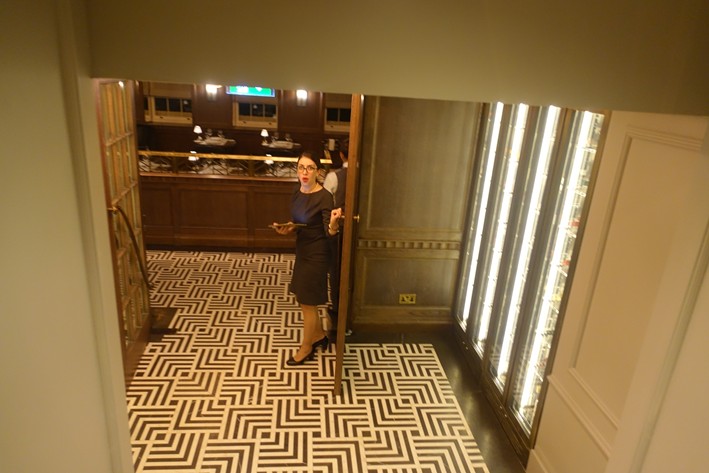
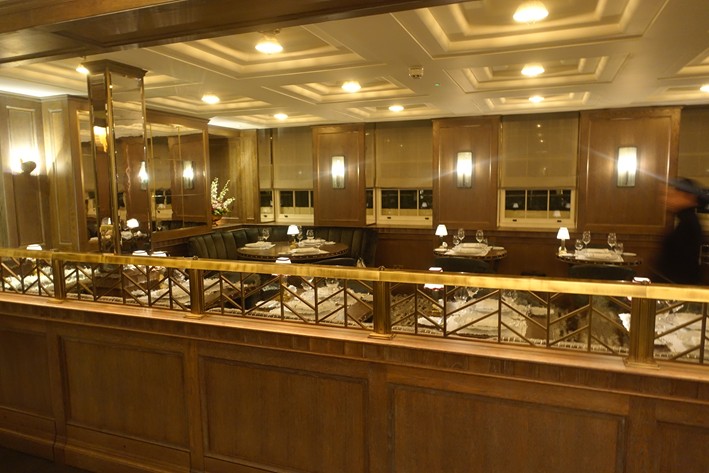
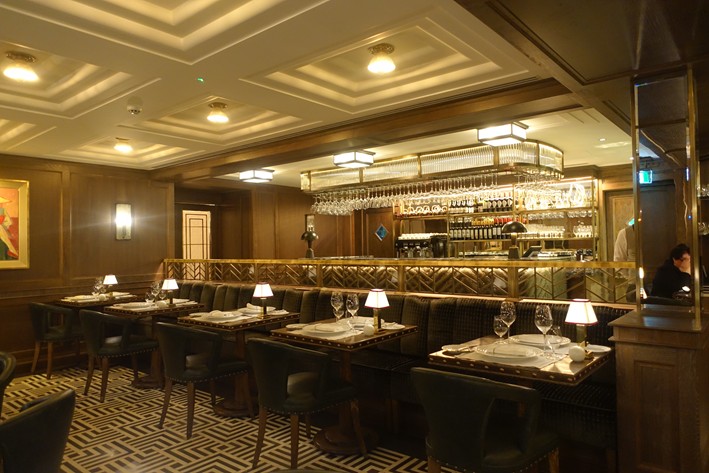
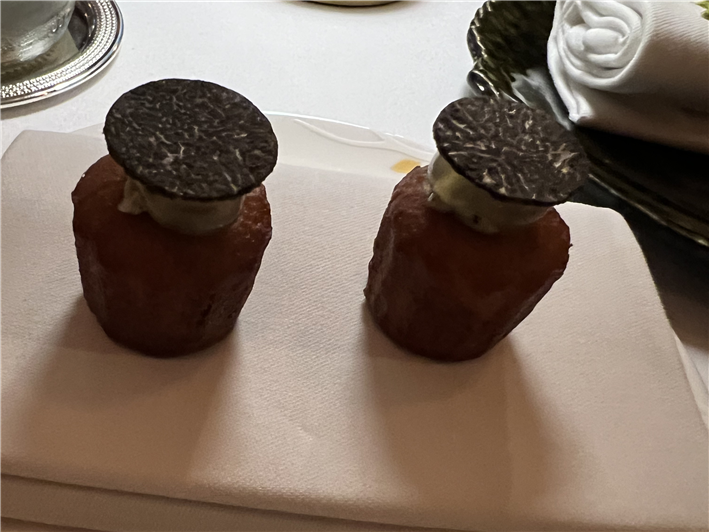
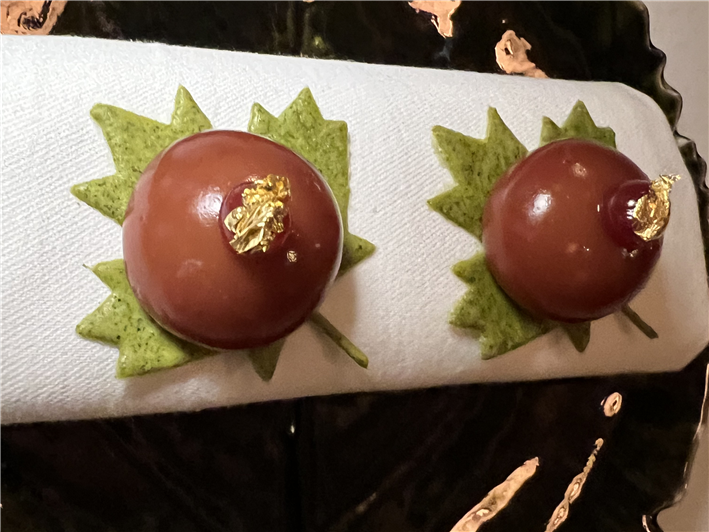
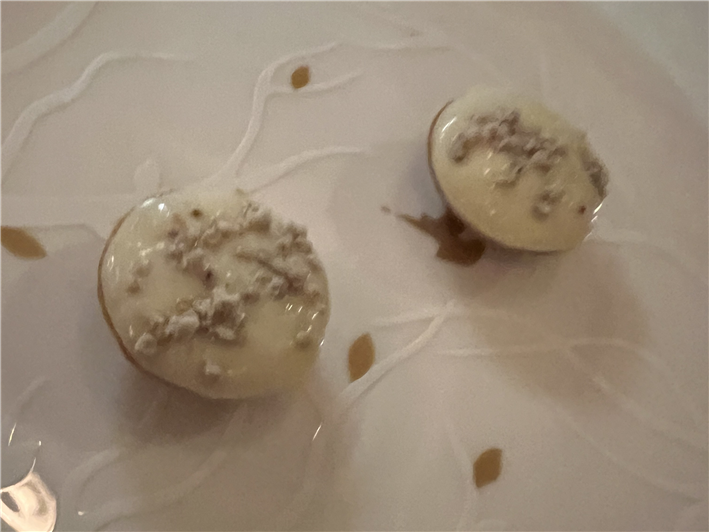
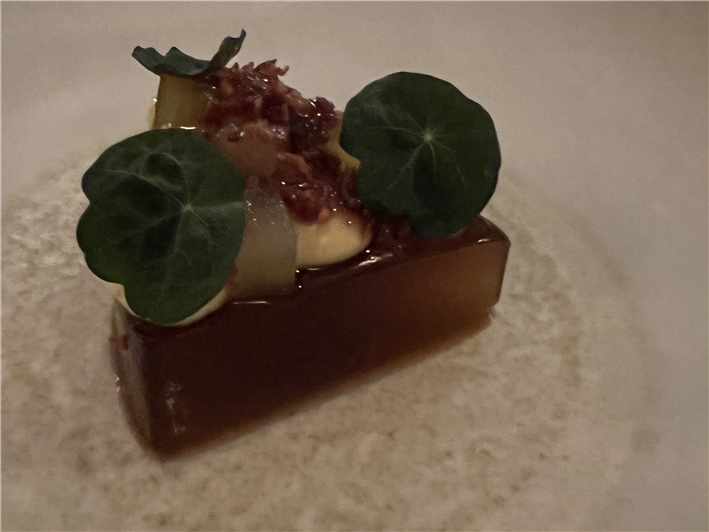
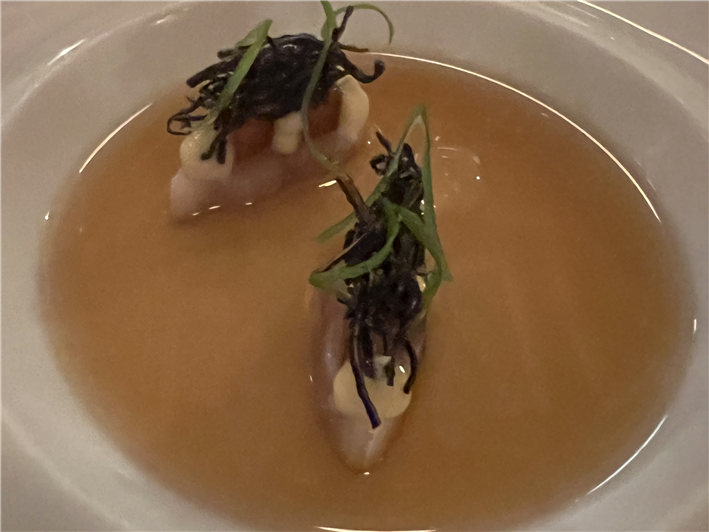
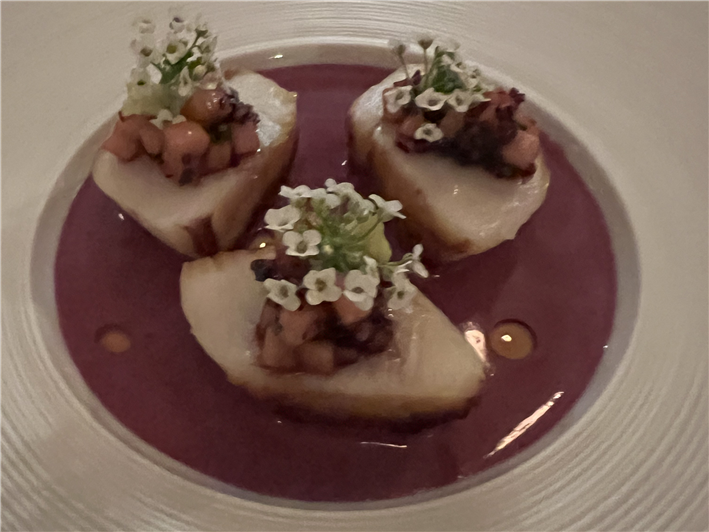
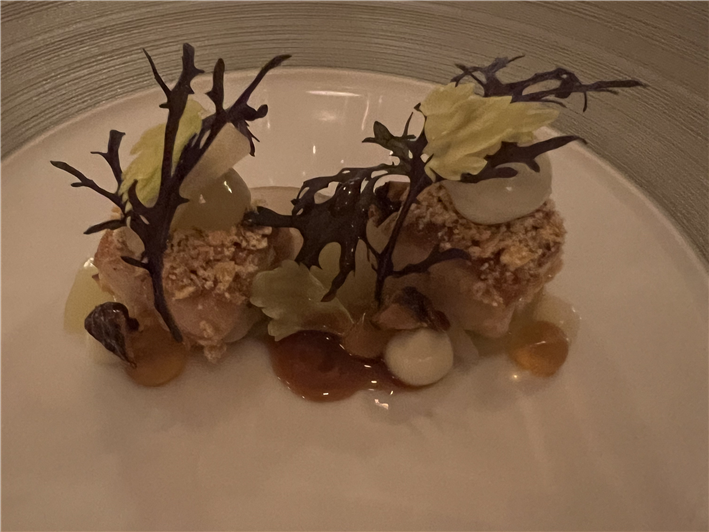
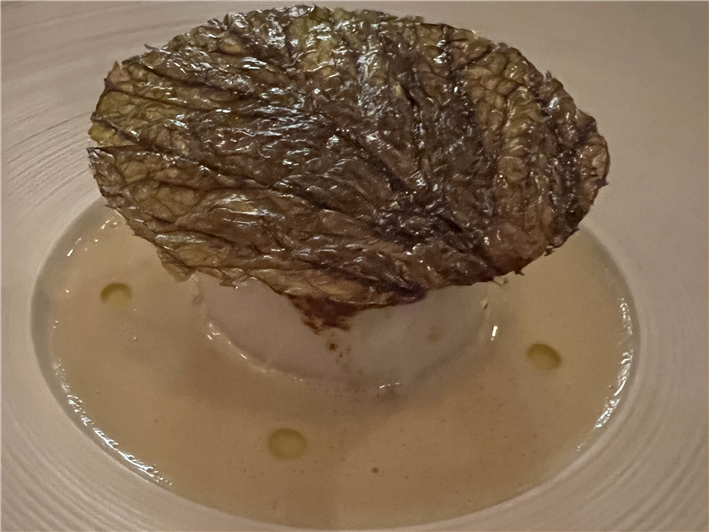
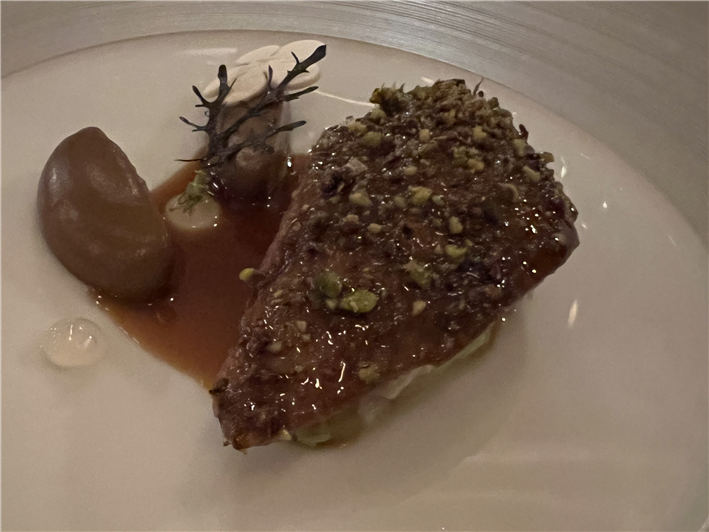
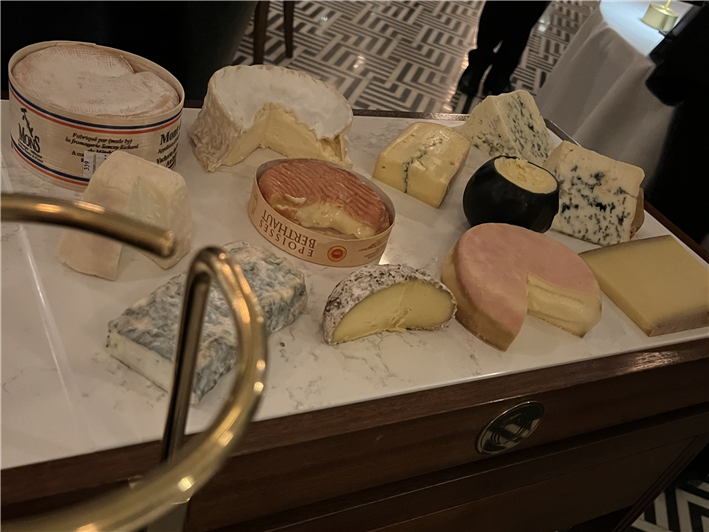
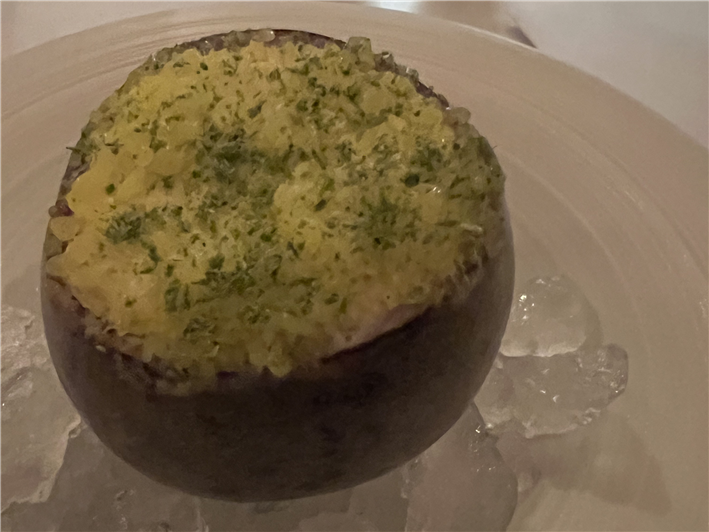
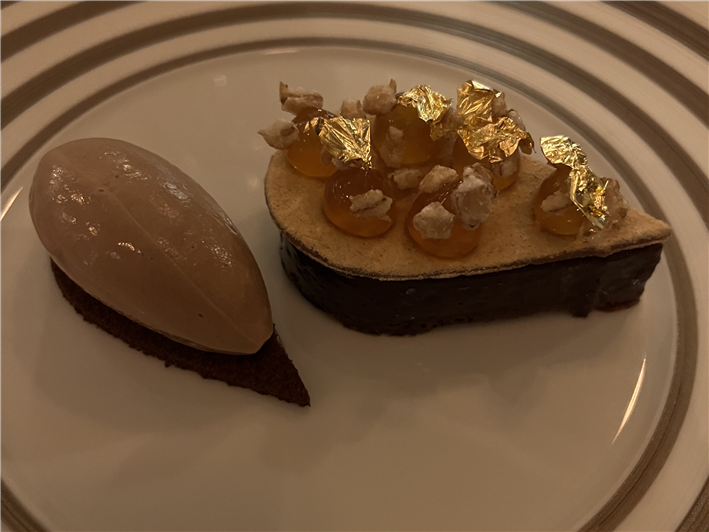
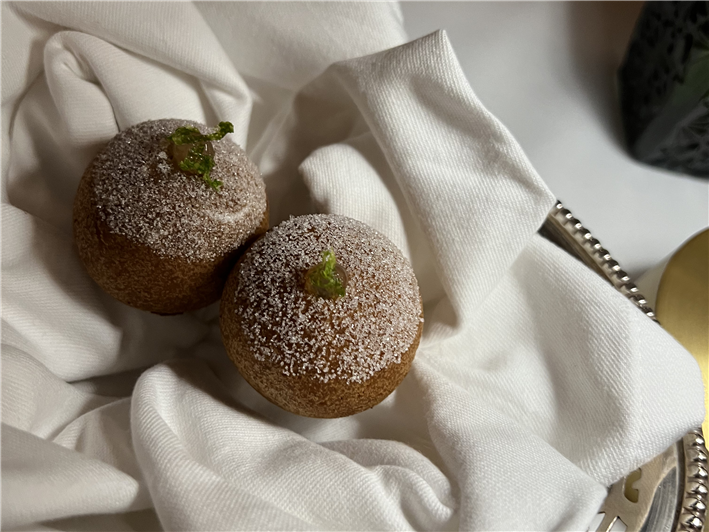
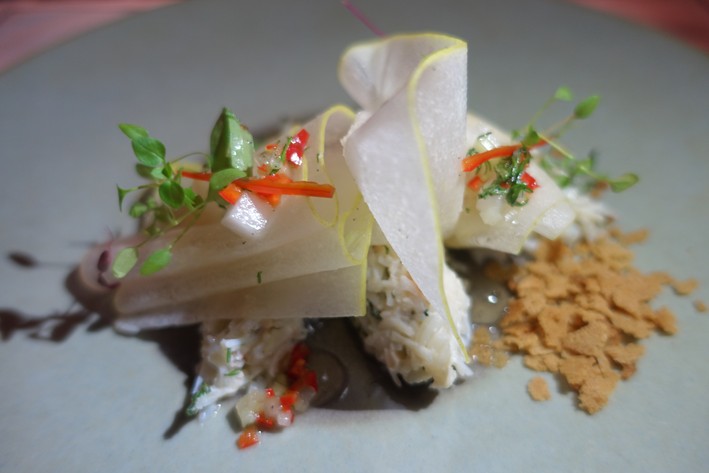
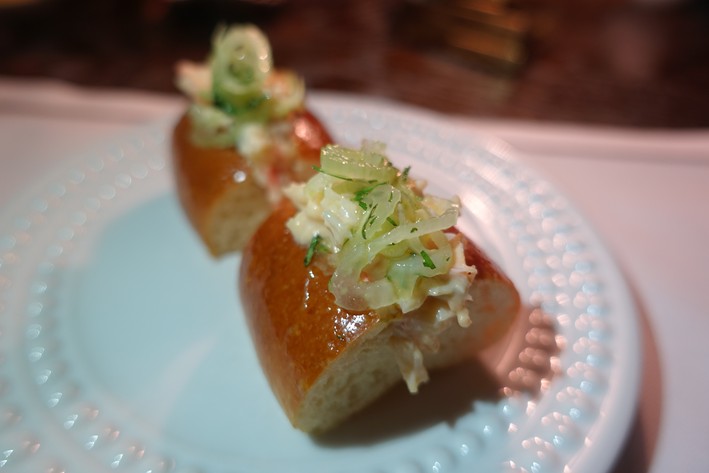
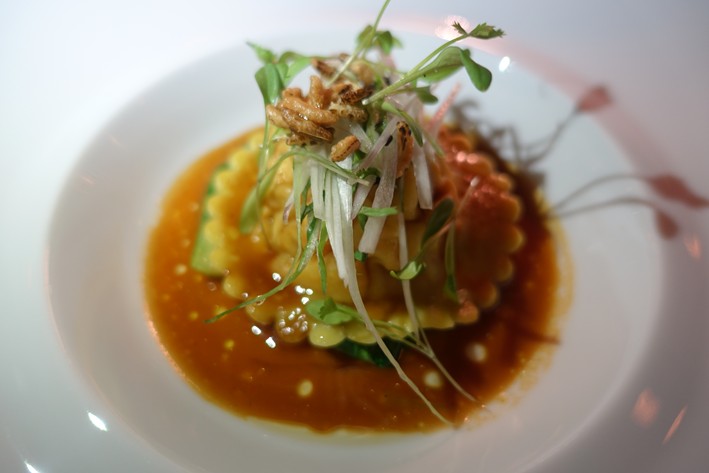
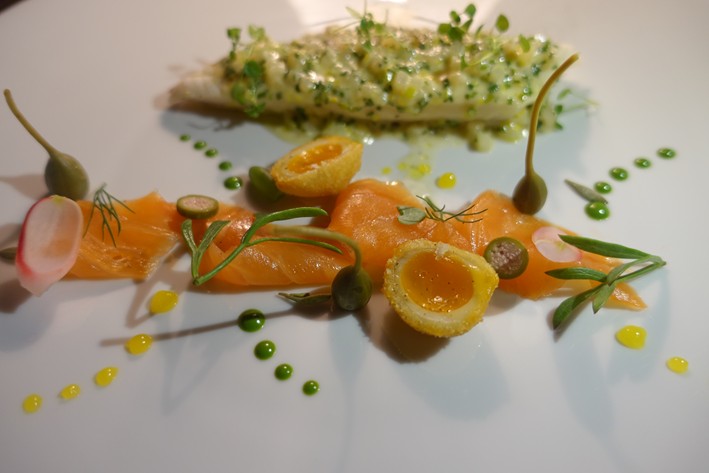
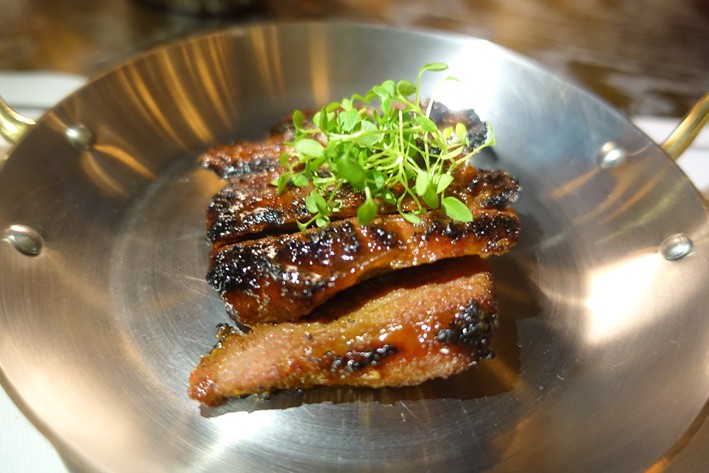
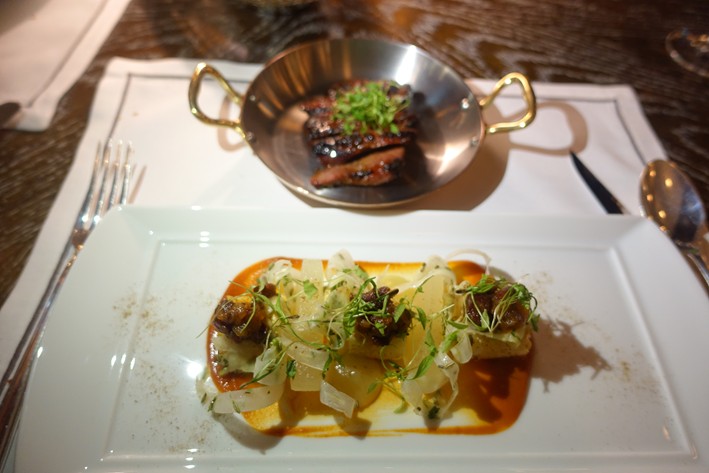
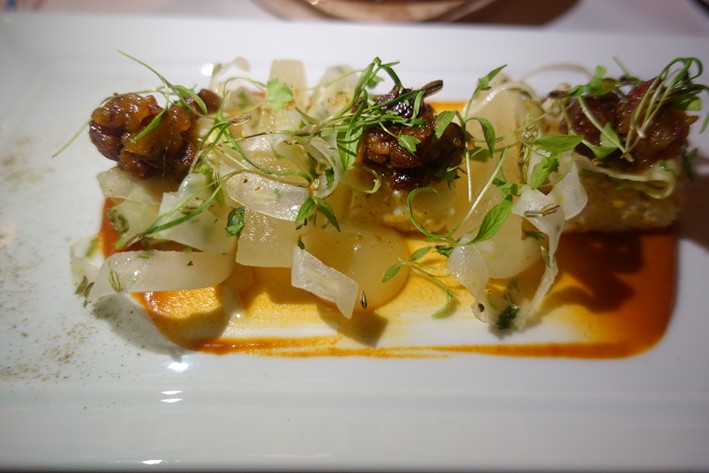
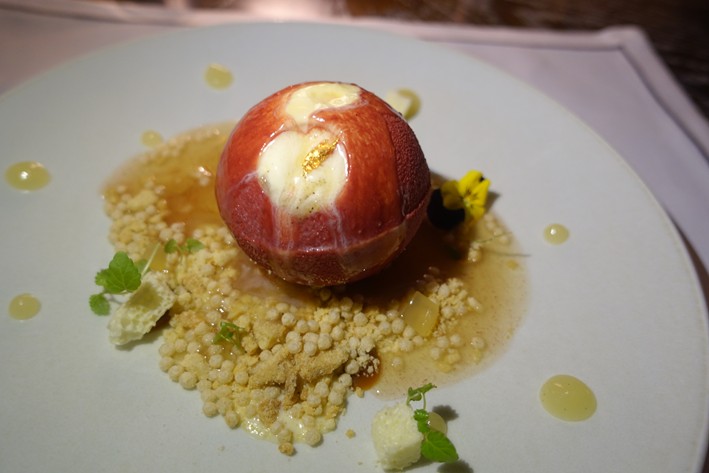
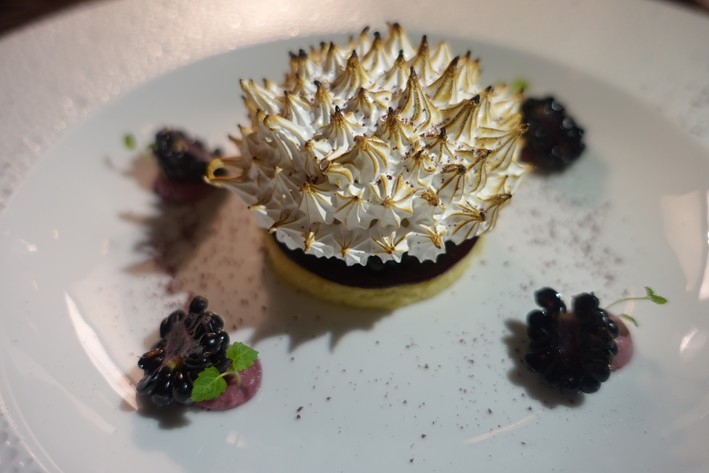
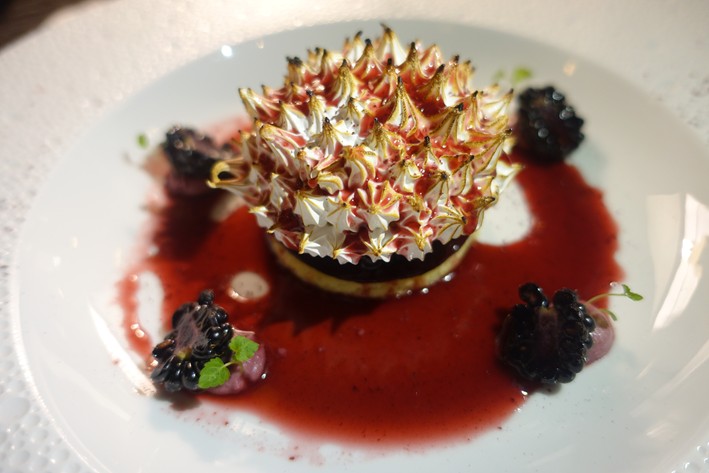

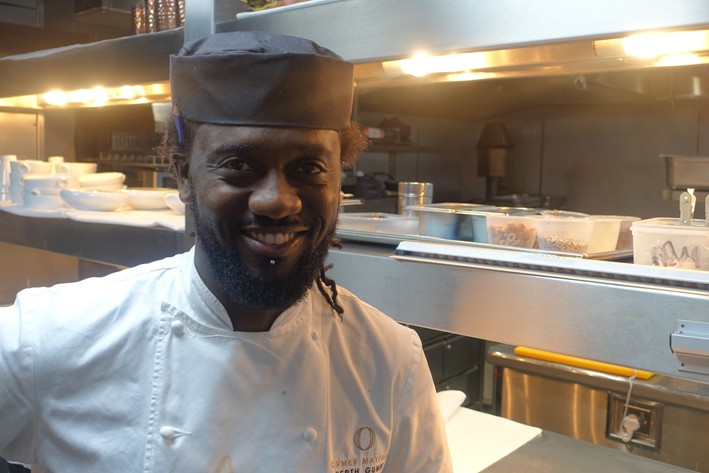

Scott Murray
Agree absolutely with Andy (as I usually do). Am in London for 6 days and 12 meals and went to Ormer at the start (after the very good Great British Restaurant and Hide, which is miles better than Dabbous was, but still doesn't thrill quite enough). Ormer's tasting menu (GF for me) opened with brilliant canapés (the haddock and potato is alone worth the journey), but I found the Torched Native Lobster a bit rich, whereas the Warm Ibérico Jelly was at least a 2-star dish, as was the Cured Cornish Mackerel with parmesan and Bramley apple. Then came two 3-star-worthy dishes: a tiny Fricassée of Scottish Langoustine with tapioca sabayon, and a Roast Anjou Pigeon with mushroom and lime. In near 50 years of fine dining around the world, this is the best pigeon dish I have eaten, beating even Jonas Mikkelsen's at Frederiksminde (Mikkelsen trained at Søllerød Kro) in Denmark, along with all the superb pigeons I have eaten in France. One sweet dish (early Gariguette Strawberries with red pepper and butter milk) was perfect and enough for me. Unless the next few days toss up a real shock, I would rate Ormer in London's top 3 French-influenced restaurants with The Ledbury and The Ritz. The Michelen 3-stars in London are not remotely in the same league.
Alan Fowle
We used to go quite often to ormer pre pandemic which hit the hotel quite hard . We happened to have booked a stay at the hotel and ate in Ormer We had the six course menu with the dishes as described by Andy , they achieved the sort of perfection only rarely encountered it was rather like having the essence of each dish ,a joyous experience enhanced by the enthusiasm of the head waiter. Incidentally I get what Andy said about wanting the feel of a whole scallop but actually ,for a change I quite liked it cut up . One of our best meals for a long time .
Janice Main
Very detailed! One of my favourite places.